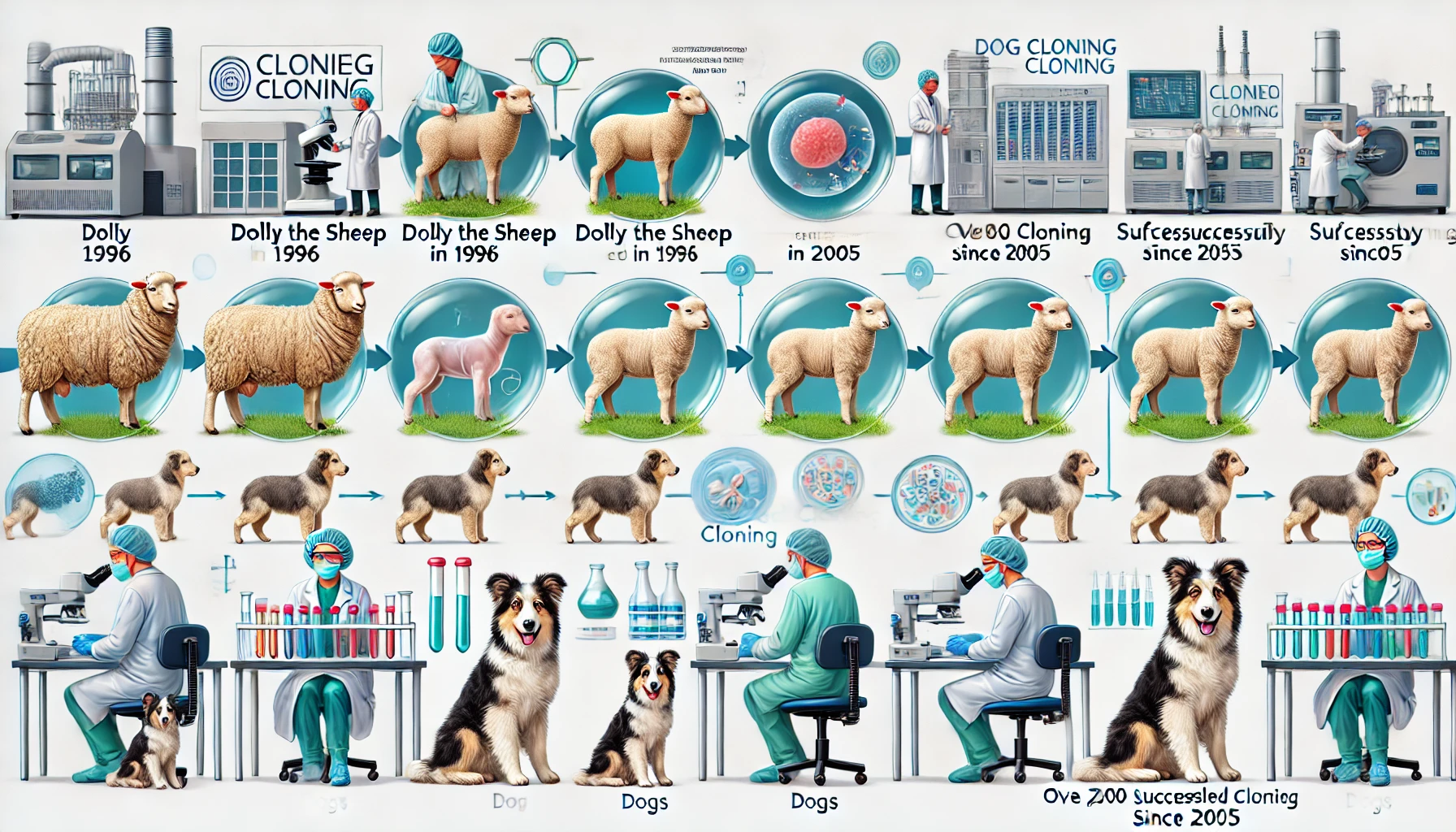The Ethical Dilemma of Cloning Your Beloved Dog: Is It Worth It?
The Fascinating World of Dog Cloning
Imagine walking into your home to find not just one, but two identical versions of your beloved dog greeting you. This isn’t a scene from a science fiction movie; it’s a reality made possible by modern science. Cloning your dog is now an option for pet owners who can’t bear the thought of saying goodbye forever. But is it truly the same dog?
How Dog Cloning Works
The process of cloning a dog involves somatic-cell nuclear transfer. Here’s a simplified breakdown:
- A tissue sample is taken from the original dog.
- The nucleus of a skin cell from this sample is extracted and implanted into an egg cell whose nucleus has been removed.
- Electricity is used to stimulate cell division, and the embryo is implanted into a surrogate mother dog.
This complex process ultimately results in a genetic twin of the original dog. ViaGen Pets & Equine is a leading company in this field, offering this service for a significant fee.
Emotional Bonds and Ethical Questions
For many pet owners, the bond with their dog is unique and irreplaceable. This emotional attachment is often the driving force behind the decision to clone. However, cloning raises several ethical concerns:
- Exploitation: Are grieving owners being monetized?
- Animal Welfare: What happens to the donor and surrogate dogs?
- Shelter Animals: Should resources be spent on cloning when many dogs need homes?
The Science Behind the Magic

The concept of cloning isn’t new. The famous sheep, Dolly, was cloned in 1996, and since then, the technology has advanced significantly. Cloning a dog is much more complex due to their unique reproductive biology, but researchers have made it possible, leading to more than 2,000 successfully cloned dogs since 2005.
Case Study: John Mendola and Princess
John Mendola’s story highlights the emotional side of dog cloning. After losing his beloved dog, Princess, to cancer, Mendola turned to ViaGen to clone her. The result was two identical puppies, Princess Ariel and Princess Jasmine, who brought immense joy and a sense of continuity to Mendola’s life. But are these clones really the same as the original Princess?
The Controversies of Cloning
Cloning isn’t without its controversies. Critics argue that the process objectifies animals, treating them as commodities rather than sentient beings. Bioethicists like Lisa Moses and Jessica Pierce raise concerns about the broader implications of cloning and its impact on our perception of animal individuality and ethics.
The Cloning Process and Its Challenges

Cloning dogs comes with significant challenges, both technical and ethical. The high failure rate of dog clones and the potential for congenital abnormalities make the process fraught with risks. Furthermore, the need for donor and surrogate dogs adds another layer of ethical complexity.
Genetic Twins but Different Dogs
While cloned dogs are genetic twins of the original, they are not identical in every way. Environmental factors, upbringing, and individual experiences shape each dog’s personality and behavior. Cloned dogs may resemble their originals physically, but they can have different quirks and temperaments.
The Cost of Cloning
Cloning a dog is an expensive endeavor, often costing around $50,000. This price tag includes the cryopreservation of cells and the complex cloning process. For many, this cost is prohibitive, and for others, it raises the question of whether the money could be better spent, for instance, by adopting and caring for multiple shelter dogs.
Future of Pet Cloning
As technology advances, the possibility of cloning other animals, even extinct species, becomes more feasible. However, the ethical and practical implications remain significant barriers. Conservationists see potential in cloning endangered species, but the process is still far from being a straightforward solution.
Conclusion: A Personal Choice
Cloning a beloved pet is a deeply personal decision, fraught with emotional, ethical, and financial considerations. While the idea of having your beloved dog back can be incredibly appealing, it’s important to weigh the implications carefully. Cloning might provide comfort to some, but it also brings up significant questions about our relationship with our pets and our responsibilities as their caretakers.
Ultimately, whether or not to clone a dog is a decision that each pet owner must make based on their values, beliefs, and resources. It’s a testament to the lengths we’ll go to for the love of our furry friends.
FAQs
- What is dog cloning? Dog cloning involves creating a genetic twin of a dog by using somatic-cell nuclear transfer.
- How much does it cost to clone a dog? The cost is typically around $50,000.
- Are cloned dogs identical to the original? While genetically identical, cloned dogs may have different personalities due to environmental factors.
- What are the ethical concerns with dog cloning? Ethical concerns include exploitation of owners, welfare of donor and surrogate dogs, and the availability of shelter dogs needing homes.
- Is dog cloning widely accepted? Dog cloning is controversial and raises significant ethical and practical questions, making it a polarizing topic.


Post Comment